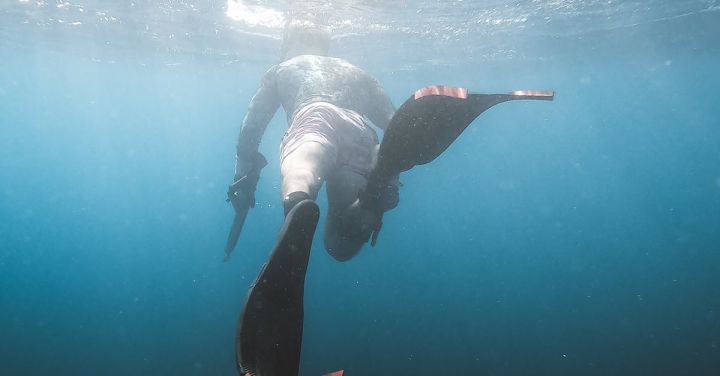Can Spearfishing Be Done Sustainably?

Spearfishing is an age-old practice that involves hunting fish underwater using a specialized weapon. This traditional method of fishing has been used by coastal communities for centuries, providing them with a reliable source of food. However, in recent years, concerns have been raised about the sustainability of spearfishing and its impact on marine ecosystems. In this article, we will explore the question: Can spearfishing be done sustainably?
Understanding the Impact
Before we delve into the sustainability of spearfishing, it is essential to understand its potential impact on marine ecosystems. Spearfishing, when practiced irresponsibly, can lead to overfishing and the destruction of coral reefs. This is particularly true in popular spearfishing destinations where large numbers of fish can be easily targeted. The use of non-selective spearfishing techniques, such as using scuba gear to hunt fish at greater depths, can also result in the unintended capture of non-target species.
Practicing Sustainable Spearfishing
Despite the potential negative impact, spearfishing can be done sustainably if certain guidelines are followed. By implementing responsible practices, spearfishers can help minimize their ecological footprint and ensure the long-term health of marine ecosystems.
1. Know the Regulations
One of the most crucial aspects of sustainable spearfishing is understanding and adhering to local fishing regulations. These regulations are in place to protect vulnerable species, establish catch limits, and preserve the overall health of the marine environment. By familiarizing themselves with these regulations, spearfishers can ensure that they are fishing within sustainable limits.
2. Selective Targeting
To minimize the impact on fish populations, spearfishers should practice selective targeting. This involves only hunting for species that are abundant and mature, while avoiding those that are endangered or undersized. By targeting specific species, spearfishers can help maintain a balanced ecosystem and prevent the depletion of key fish populations.
3. Avoid Overfishing
Overfishing is a significant threat to marine ecosystems, and spearfishers must play their part in preventing it. By setting personal catch limits and only taking what is needed, spearfishers can avoid contributing to the depletion of fish stocks. Additionally, practicing catch and release for non-target species can help preserve biodiversity and maintain the overall health of the ecosystem.
4. Respect Marine Life
Respecting marine life is essential for sustainable spearfishing. This means avoiding the destruction of coral reefs and other fragile habitats, as well as minimizing disturbances to marine animals. Spearfishers should be mindful of their surroundings and take care not to cause unnecessary harm to the underwater environment.
The Role of Education and Awareness
To ensure the sustainability of spearfishing, education and awareness play a vital role. By promoting responsible fishing practices and providing information about marine conservation, spearfishing communities can contribute to the long-term health of marine ecosystems. Training programs and workshops can help spearfishers understand the importance of sustainable fishing and provide them with the knowledge and skills to practice it.
Conclusion
Spearfishing can be done sustainably if proper guidelines are followed. By understanding the potential impact and implementing responsible practices, spearfishers can help protect marine ecosystems and ensure their longevity. Through education and awareness, the sustainability of spearfishing can be promoted, allowing future generations to enjoy this ancient practice while preserving the health of our oceans.
